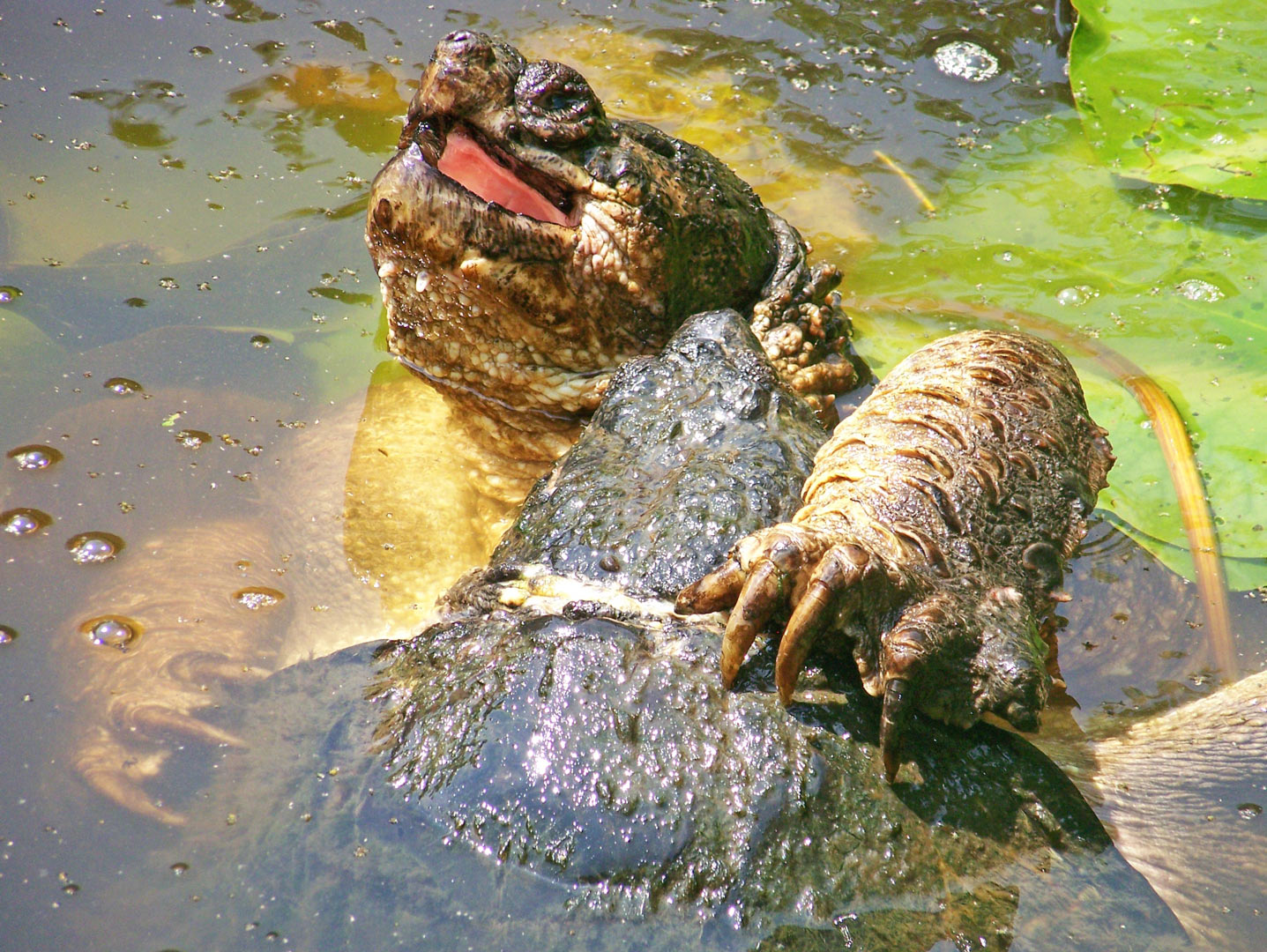Yes, snapping turtles are territorial creatures that establish and defend their own territories. They can become aggressive when other turtles encroach upon their space.
Snapping turtles are known for their ability to snap their powerful jaws shut and can be quite formidable when protecting their territory. They are commonly found in freshwater habitats and prefer to stay near the water’s edge. Snapping turtles are solitary animals and tend to keep to themselves, except during the breeding season when they seek out a mate.
Understanding their territorial nature is important when interacting with snapping turtles to ensure the safety of both humans and the turtles themselves.

Credit: www.turtleguardians.com
Understanding Snapping Turtles
Snapping turtles are known for their distinct physical characteristics. They have a large, muscular body covered in rough, bumpy skin, which is typically olive to dark brown in color. One of their most notable features is their powerful jaws, which can deliver a quick and forceful bite. They also have a long tail and webbed feet, allowing them to be strong swimmers.
In terms of habitat and behavior, snapping turtles are versatile creatures. They are found in various freshwater habitats, including ponds, lakes, rivers, and swamps. These turtles prefer areas with shallow water and soft mud or sandy bottoms, where they can bury themselves and wait for their prey.
Snapping turtles are often considered territorial. They tend to occupy a specific area of their habitat, defending it against other turtles and intruders. This territorial nature is particularly evident during the breeding season when male snapping turtles aggressively compete for mates.

Credit: www.foxrunenvironmentaleducationcenter.org
Territorial Behavior In Snapping Turtles
Snapping turtles are known for their territorial behavior, especially during the breeding season. They exhibit a strong instinct to defend their territory from intruders. This territorial behavior is driven by the need for resources and mating opportunities.
Defending Territory: Snapping turtles establish their territory in bodies of water such as ponds, lakes, or slow-moving streams. They fiercely defend their chosen area from other turtles or potential threats. Their aggression is evident in their snapping jaws and aggressive movements when approached.
Territorial Marking: Snapping turtles also use territorial marking to communicate their ownership. They might release pheromones or urine in the water to mark their territory boundaries. This scent acts as a warning to other turtles, signaling that the area is already claimed.
Understanding the territorial behavior of snapping turtles is crucial for their conservation and management. It helps researchers and wildlife enthusiasts identify the importance of stable habitats and conservation efforts to protect these fascinating reptiles.
Interactions With Humans
Snapping turtles, known for their aggressive nature, often come into contact with humans. It is important to understand how to avoid conflicts with these creatures to ensure safety for both humans and turtles.
When encountering a snapping turtle in the wild, it is crucial to maintain a safe distance. These turtles have powerful jaws that can cause serious injury. It is best to appreciate them from afar and refrain from attempting to touch or provoke them.
In situations where snapping turtles inhabit areas near human settlements, measures can be taken to prevent conflicts. Creating barriers, such as fences or natural deterrents, can help keep turtles away from residential areas and gardens. It is also important to properly dispose of trash, as food waste can attract these turtles.
While snapping turtles can be fascinating creatures, they are not suitable as pets for everyone. These turtles require specialized care and maintenance. Their aggressive nature and size make them challenging to handle, especially for inexperienced individuals.
Furthermore, many jurisdictions have laws and regulations regarding owning snapping turtles as pets. It is important to research and understand local laws before considering them as pets.
Credit: www.metroparks.net
Conclusion
Snapping turtles are indeed territorial creatures, defending their space fiercely. Understanding their territorial nature is crucial for their conservation and our safety. By respecting their space and promoting conservation efforts, we can ensure a harmonious coexistence. So, let’s appreciate these remarkable creatures from a distance and strive to protect their habitats for future generations to enjoy.





